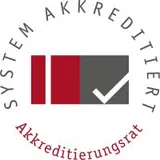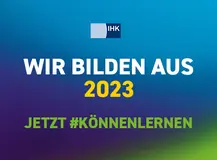Program & Proceedings
Detailed Program
The detailed program for KONVENS is now available.
The schedule is subject to change.
Keynotes
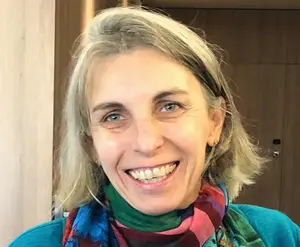
Topic: Opportunities and Challenges for Natural Language Processing in Robot-Assisted Disaster Response
Abstract: Firefighters and other first response organisations are increasingly using mobile robots for reconnaissance and other tasks, because robots can help decrease the personal risk for first responders and extend their operational capabilities. We have been working with first responders since about a decade ago to investigate teamwork in robot-assisted disaster response in realistic scenarios. We found that teamwork can be facilitated by interpreting the verbal communication among the human team members and grounding it in mission process models, in order to understand the mission as it unfolds, the goals, the tasks within the human-robot team and the state of their execution. I will discuss our approach and some of the results as well as challenges and open questions for future research.
The work presented in this talk started in the EU FP7 projects NIFTi (Natural Human-Robot Cooperation in Dynamic Environments; Jan 2010 - Dec 2013, www.nifti.eu) and TRADR (Long-Term Human-Robot Teaming for Robot-Assisted Disaster Response; Nov 2013 - Dec 2017, www.tradr-project.eu). It continues in the A-DRZ/E-DRZ projects funded by the German BMBF (Aufbau/Etablierung des Deutschen Rettungsrobotik-Zentrums; Nov 2018 - Oct 2022 / Oct 2025; www.rettungsrobotik.de).
Speaker: Dr. Ivana Kruijff-Korbayová (F) graduated at the Czech Technical University (1992) and obtained her PhD at the Charles University, Prague (1998). 1999-2000 she held visiting fellowships from the British Academy and Royal Society / NATO at the University of Edinburgh. 2001-2010 she was as a senior researcher at the Department of Computational Linguistics, Saarland University, Saarbrücken. 2012-2023 she coordinated the Erasmus Mundus European Masters Program in Language and Communication Technologies at the Saarland University. 2010-2022 she was a senior researcher in the Multilinguality and Language Technology Lab at the German Research Center for Artificial Intelligence (DFKI) in Saarbrücken, focussing on natural language processing for dialogue systems and human-robot interaction. She lead the Talking Robots Group from 2014 and in 2016 founded the DFKI competence center for Emergency Response and Recovery. She was a coordinator and/or leader in several large projects on robot-assisted disaster response and on 1.9.2016 lead the deployment of a human-robot team in the earthquake-struck Amatrice in Italy. She is a member of the Advisory Board of the International Association of Fire and Rescue Services (CTIF). From January 2023 she is head of research, development and transfer at the German Rescue Robotics Center (DRZ). She has over 70 peer-reviewed publications and h-score 27.
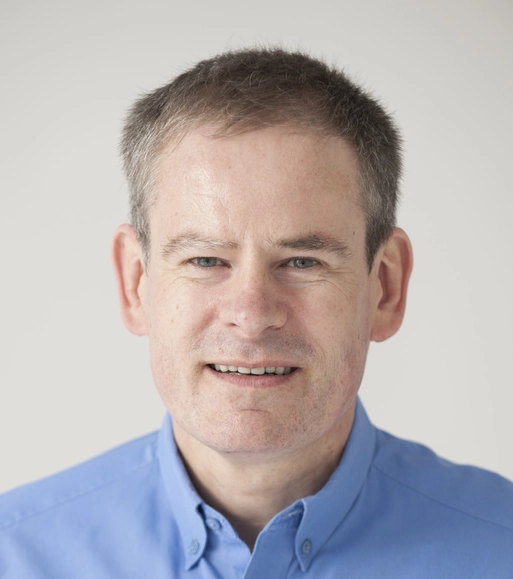
Topic: Glot500: Scaling Multilingual Corpora and Language Models to 500 Languages
Abstract: Large language models (LLMs) are currently the most active area of research in NLP. Most work has focused on what we call "vertical" scaling: making LLMs even better for a relatively small number of high-resource languages. We address "horizontal" scaling instead: extending LLMs to a large subset of the world's languages, focusing on low-resource languages. Our Glot500-m model is trained on more than 500 languages, many of which are not covered by any other language model. I will talk about the major challenges we faced: (i) finding, validating and cleaning training data for low-resource languages; (ii) evaluating performance of Glot500-m on low-resource languages for which native speakers and labeled datasets were not available to us; and (iii) determining the factors that ultimately make training on a low-resource language successful. We find that trying to reduce such factors to the so-called curse of multilinguality is naive and there is in fact also a "boon of multilinguality". We have released Glot500-m and are in the process of making Glot500-c, our training corpus covering 500 languages, publicly available.
Speaker: Prof. Dr. Hinrich Schuetze is Chair of Computational Linguistics and co-director of the Center for Language and Information Processing at LMU Munich. Ever since starting his PhD in the early 1990s, Hinrich's research interests have been at the interface of linguistics, cognitive science, neural networks and computer science. Recent examples include learning with natural language instructions, multilingual representation learning for low-resource languages, computational morphology and neurosymbolic approaches. Hinrich is coauthor of two widely used textbooks (Foundations of Statistical Natural Language Processing and Introduction to Information Retrieval) and a fellow of HessianAI, ELLIS (the European Laboratory for Learning and Intelligent Systems) and ACL (Association for Computational Linguistics).
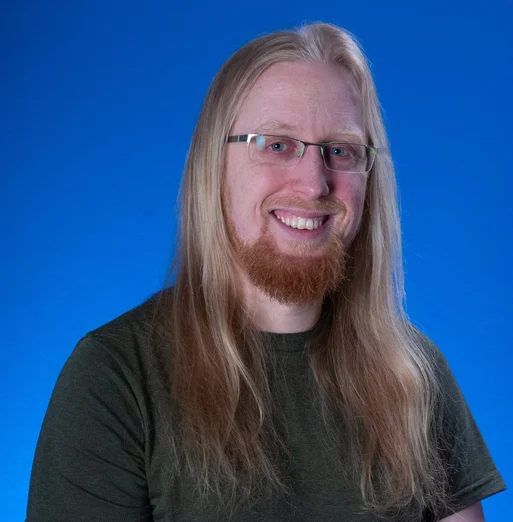
Topic: Being a computational linguist in sign language research
Abstract: Many different sign languages exist across the globe. They are fully-formed natural languages that use the visual-gestural modality to convey meaning and represent the preferred mode of communication for many deaf and hard-of-hearing people. For computational linguists, working with sign languages presents many challenges. Sign languages are three-dimensional and are produced using multiple channels (right hand, left hand, face, posture…) at once. They have no commonly used writing systems. Annotated corpora are rare and considerably smaller than most spoken language text corpora. Most preprocessing tools such as tokenizers or POS-taggers are not available either, in some cases because even the linguistic basis on which they would build is disputed. Other challenges are of an ethical nature. Deaf communities are linguistic and cultural minorities. To ensure that language technologies contribute to their empowerment and avoid harm and exploitative practices, development must happen for and with those communities. I will talk about my experience of joining a sign language corpus project, facing these challenges, what sign language technologies I did encounter and where I believe computational linguists can most help.
Speaker: Dr. Marc Schulder is a computational linguist working to further the open and ethical creation and use of language data, especially data for signed languages. After completing his PhD at Saarland University on the automatic creation of lexical resources for negation-causing content words in English and German, he joined the DGS-Korpus project, creators of the largest available discourse corpus of German Sign Language (DGS), in early 2019. As part of the project he investigates machine-assisted methods to support corpus linguistic research, possible implementations of open science principles and data standardisation for signed language data, and the creation of cross-lingual sign language resources. Since 2021 he has also been involved in the EU project EASIER on machine translation between the spoken and signed languages of Europe. Marc is also co-creator of the Sign Language Dataset Compendium, a website collecting information on corpora and lexical resources for sign languages from around the globe, and of the workshop series archive sign-lang@LREC Anthology.
Workshops, Shared Task, Tutorial
The fast-paced nature of progress in NLP poses unique challenges to educators engaging in curriculum design for NLP courses and NLP-related degree programs. Its rapid growth has led to the creation and revision of thousands of courses and degree programs at universities and online, as well as new educational materials focused on emerging subareas of NLP (e.g., prompting, ethics in NLP systems). For the Workshop on Teaching NLP we propose to bring the NLP community together to discuss crucial topics related to education in NLP.
- Submission deadline: June 9, 2023
- Author notification: July 5, 2023
- Camera ready deadline: July 15, 2023
- Workshop date: September 18, 12pm - 6pm + Workshop Dinner
- Contact: konvens-teach4nlp@googlegroups.com
For more information, visit the official Teaching for NLP Workshop page by the GSCL.
The goal of this shared task is the identification of speakers in political debates and in newswire, and the attribution of speech events, including thought and writing, to their respective speakers.
Being able to identify this information automatically, i.e., identifying who says what to whom, will enable a deep semantic analysis of unstructured text. Specifically, it will help to provide information necessary for identifying speakers and their messages in textual data, a crucial prerequisite for structured text analysis.
- Training and development data release: April 1, 2023
- Test data release (blind): June 15, 2023
- Submissions open: July 1, 2023
- Submissions close: July 31, 2023
- System descriptions due: August 14, 2023
- Camera-ready system paper deadline: September 7, 2023
- Workshop date: September 18, 2023
For more information, visit the official Speaker Attribution 2023 Competition website by Université Paris-Saclay.
The progress of natural language processing (NLP) is primarily driven by machine learning that optimizes a system on a large-scale set of task-specific labeled examples. This learning paradigm limits the ability of machines to have the same capabilities as humans in handling new tasks since humans can often solve unseen tasks with a couple of examples accom-panied by task instruction. In addition, we may not have a chance to prepare task-specific examples of large-volume for new tasks because we cannot foresee what task needs to be ad-dressed next and how complex to annotate for it. Therefore, task instructions act as a noveland promising resource for supervision.
This tutorial targets researchers and practitioners who are interested in AI and ML technologies for NLP generalization in a low-shot scenario. In particular, we will present a diverse thread of instruction-driven NLP studies thattry to answer the following questions: (i) Whatis task instruction? (ii) How to construct task instructions? (iii) How to encode task instruction? (iv) How generalizable are the systems trained on task instructions? (v) How robust is learning from task instructions? We will discuss several lines of frontier research that tackle those challenges and will conclude the tutorialby outlining directions for further investigation.
PDF: Tutorial Description - Learning from Task Instructions
- Tutorial date: September 21, 2023
This workshop focuses on linguistic multimodal phenomena, domain- and task-specific analyses of multimodality and, generally, contributions of computational linguistics to multimodal learning and vice versa. With this, we aim to bring together researchers who work on various linguistic aspects of multimodal language processing to discuss and share the recent advances in this interdisciplinary field.
- Submission deadline : July 07, 2023
- Author notification: August 21, 2023
- Camera ready deadline: September 04, 2023
- Workshop date: September 22, 2023
For more information, visit the official Linguistic Insights from and for Multimodal Language Processing workshop page.
This is the 3rd edition of the workshop on Computational Linguistics for the Political and Social Sciences (CPSS). Our main goal is to bring together researchers and ideas from computational linguistics/NLP and the text-as-data community from political and social science, to foster collaboration and catalyze further interdisciplinary research efforts between these communities.
- Submission deadline:
June 14, 2023Extended: June 24, 2023 - Notification of acceptance:
July 10, 2023July 20, 2023 AOE - Camera ready deadline:
July 20, 2023July 25, 2023 AOE - Workshop date: September 22, 2023
For more information, visit the official CPSS workshop page.
PhD Event
We would like to invite all PhD students in the field of Natural Language Processing (or adjacent) to join the PhD Event at KONVENS 2023 @ Technische Hochschule Ingolstadt.
The conference itself provides the ideal opportunity to come into contact with work on Computational Linguistics in both academia and industry. The PhD Event is designed to offer a space for (fun) discussions relating to all aspects of life as a PhD student in NLP and to get to know your community.
Preliminary Schedule
- 13:00 - Introductions
- 13:30 - Lightning talks
- 14:30 - Art Therapy
- 16:30 - End / Optional drinks in the city center
- 18:00 - PhD Dinner
Organizing Team
- Kevin Glocker (Technische Hochschule Ingolstadt)
- Eugenia Rykova (Technische Hochschule Wildau)
- Deniz Yavas (Heinrich-Heine-Universität Düsseldorf)
- Ilja Baumann (Technische Hochschule Nürnberg)
PhD students have the opportunity to briefly present their topic in 3-4 minutes lightning talks with a chance to get feedback and exchange ideas with their peers
Applying creativity to cope with difficulties and manage insecurities.
The session will consist of:
- Art-therapy warm-up: Expression of emotions through colour
- Main activity: Comic drawing and story telling
- Art-therapy windup: Transformation of unpleasant experiences
We're excited to have you join us for a fun and informative event!
News
- 2023-08-03: We would like to invite all PhD students in the field of Natural Language Processing (or adjacent) to join the PhD Event at KONVENS 2023 @ Technische Hochschule Ingolstadt.
- 2023-01-27: Announcement of the KONVENS 2023 by the Gesellschaft für Sprachtechnologie und Computerlinguistik (GSCL)

